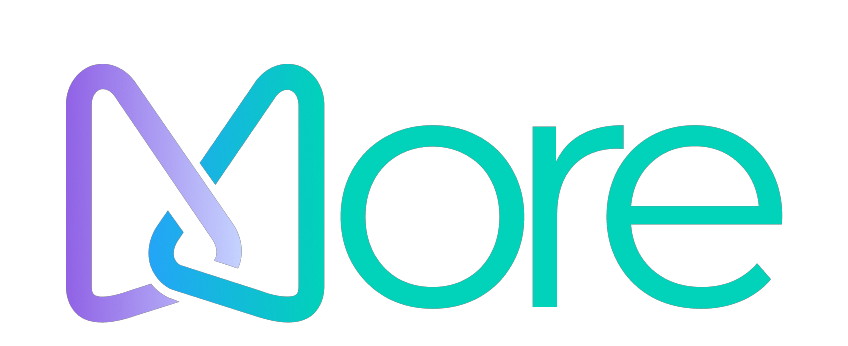Introducere
Odoo is a powerful ERP system that offers a comprehensive suite of business applications for companies looking to streamline operations. Despite its numerous benefits, Odoo implementation challenges often arise during the setup and integration process, making it difficult for both partners and end-users to adapt smoothly. This article explores the most common Odoo implementation challenges, such as user resistance to change, data migration issues, and the complexities of customization and integration. It also highlights solutions, including the use of gamified onboarding tools like More Gamification to ensure successful adoption.
1. User Resistance to Change
User resistance is one of the most frequent Odoo implementation challenges. Employees who are accustomed to legacy systems often hesitate to switch to a new platform, regardless of its benefits.
Why Users Resist Change:
- Fear of the Unknown: Moving to a new system creates uncertainty. Employees may worry about learning Odoo and whether they can master its new processes.
- Comfort with Existing Processes: Many users are comfortable with old systems and find it difficult to let go of established workflows.
- Increased Workload Perception: Learning a new ERP system initially feels like an added burden, especially if users don’t receive adequate support.
Solutions to Overcome Resistance:
- Clear Communication: Address user concerns early on by clearly explaining why Odoo is being implemented and how it will make their work easier. Highlight the long-term advantages of the switch.
- Involve Users from the Start: Allow key employees to participate in the system’s early testing and give feedback. This inclusion reduces resistance and fosters ownership of the new system.
- Gamified Onboarding with More Gamification: A great way to mitigate resistance is to provide a gamified onboarding journey. Tools like More Gamification create an interactive and enjoyable experience for learning Odoo. Employees earn rewards and receive real-time feedback as they complete training milestones, making the process fun and less overwhelming. This gamified learning path can make users feel more engaged and reduce friction during the transition.
2. Lack of Understanding of Odoo’s Capabilities
Another common Odoo implementation challenge is helping users understand how to make the most of the system’s vast capabilities. Odoo’s range of modules can be overwhelming, leading to underutilization or incorrect use.
Challenges:
- Overwhelming Features: Users might feel overwhelmed by the many features Odoo offers, leading to reluctance in fully adopting the system.
- Wrong Module Selection: Implementing unnecessary modules can complicate workflows rather than streamline them.
Solutions:
- Tailored Implementations: To combat this, Odoo partners should ensure that the implementation is specifically tailored to meet the business’s needs. Deploy only the necessary modules during the initial phase to prevent overwhelming users.
- Ongoing Education and Support: Continuous training is key. More Gamification can be integrated into learning programs to keep employees engaged while deepening their understanding of Odoo over time.
3. Data Migration Issues
Data migration is one of the most technically complex Odoo implementation challenges. Transferring data from a legacy system into Odoo can be fraught with inconsistencies, risking data loss or integrity issues.
Challenges:
- Inconsistent Data Formats: Legacy systems often store data in formats that require extensive cleaning and formatting before migration to Odoo.
- Fear of Data Loss: Employees worry about losing important data during migration, leading to hesitancy about adopting the new system.
Solutions:
- Data Mapping and Cleaning: Ensure thorough data mapping and cleaning before the actual migration. By standardizing data formats and verifying data integrity, you reduce errors in the final migration.
- Pilot Testing: Conduct small-scale data migrations before going live to identify potential problems. This way, users can gain confidence that their data is safely transferred into Odoo.
4. Customization and Integration Complexities
While Odoo’s customization options are one of its strengths, they also pose significant Odoo implementation challenges. Too many customizations can introduce errors, and integrating Odoo with other software systems can complicate the process further.
Challenges:
- Excessive Customization: Customizing too many parts of Odoo can lead to bugs or instability.
- Integration Problems: Integrating Odoo with existing systems or third-party applications can be difficult, especially without adequate planning.
Solutions:
- Limit Customizations: To avoid these pitfalls, limit customizations and focus on core functionalities. Use Odoo’s built-in features whenever possible to maintain system stability.
- Gradual Integration: If the business needs Odoo to interact with other systems, integrations should be phased in slowly. Conduct extensive testing to ensure smooth data flow between systems without interruptions.
5. Change Management and Leadership Buy-In
Successful ERP implementation requires solid change management strategies and leadership buy-in to drive company-wide adoption. Without leadership support, many Odoo implementation challenges can spiral out of control.
Challenges:
- Lack of Leadership Support: Without active endorsement from leadership, employees may be slow to adopt Odoo or resist change altogether.
- Inadequate Change Management: Poorly managed change efforts can lead to confusion, delays, and reluctance to fully transition to the new system.
Solutions:
- Engage Leadership Early: Securing leadership buy-in ensures that the implementation has the necessary resources and that the benefits of Odoo are clearly communicated from the top.
- Structured Change Management: Develop a structured change management plan, including frequent communication and opportunities for feedback. Using gamified approaches through More Gamification can further help in driving motivation and enthusiasm for the change.
Concluzie
While Odoo is an effective ERP platform, Odoo implementation challenges can hinder its success if not addressed properly. Partners must focus on minimizing user resistance, ensuring smooth data migration, and avoiding excessive customizations. Gamified onboarding solutions, such as those provided by More Gamification, offer an engaging way to help users adopt new systems without frustration. By overcoming these common challenges, Odoo partners can ensure smoother implementations and long-term success for their clients.


